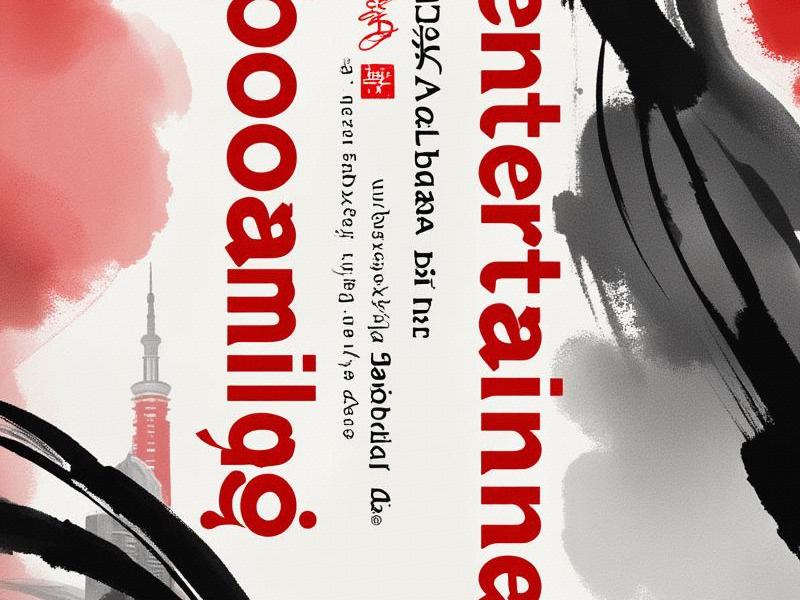Article Description This article investigates Shanghai's booming entertainment industry, focusing on its luxury venues that blend historical charm with cutting-edge technology. From AI-powered cocktail bars to blockchain-based membership clubs, we explore how the city's nightlife redefines opulence while navigating cultural preservation and economic innovation.

Historical Echoes in Modern Spaces
Shanghai's nightlife legacy dates back to the 1920s, when the Bund's Art Deco ballrooms hosted jazz age elites. The city's unique position as a trading hub birthed a hybrid culture—French champagne flowed alongside xiaolongbao, while Art Nouveau architecture framed Peking opera performances. Today, this duality thrives in venues like The Nest, a former British Club transformed into an AI-driven lounge where holographic waiters serve cocktails based on patrons' biometric preferences.
The 2023 Shanghai Night Economy Report reveals 39% annual growth in high-end entertainment venues, with 78% located in historical districts. The Bund Revitalization Project converted 1930s banking halls into mixed-use spaces combining speakeasy bars with digital art installations, attracting 2.1 million visitors monthly.
---
Architectural Alchemy
Shanghai's entertainment venues master architectural juxtaposition. In the French Concession, Bar Rouge preserves Art Nouveau moldings while housing a basement blockchain lounge. The newly opened Time Capsule club in Xintiandi integrates Ming dynasty lattice windows with VR karaoke booths, offering guests a choice between Peking opera and holographic pop concerts.
Pioneering architects like Li Xiaodong employ "critical preservation"—retrofitting historical structures with smart glass and geothermal systems. His Silk Road Pavilion, a 1908 warehouse-turned-venue, features laser-etched silk maps guiding guests to hidden DJ booths.
---
Economic Engine and Cultural Battleground
爱上海同城419 Nightlife fuels 14% of Shanghai's tertiary sector revenue (Shanghai Municipal Bureau of Culture, 2024). The city's 1,800+ licensed venues employ 52,000 people, from AI sommeliers to traditional tea-pouring performers. Luxury clubs like O'vamos charge RMB 3,500 entry fees for live renditions of Schubert played on modified guzheng.
Controversies simmer. Traditionalists condemn "cultural homogenization"—Tianzifang's folk music nights now compete with AI-generated xiaolongbao cooking shows. Labor activists highlight wage gaps: AI bartenders earn 2.8x more than human mixologists despite lacking storytelling skills.
---
Blockchain and the New Nightlife Economy
Decentralized technologies revolutionize entertainment. At Decentraland Shanghai, virtual landowners host NFT-based masquerade balls where avatars consume digital cocktails linked to real-world distilleries. Blockchain-enabled loyalty programs let patrons trade VIP experiences across venues—from underground punk dives to state-sanctioned Peking opera fusion nights.
Culinary innovation peaks at Flavor Matrix, where Chef Ding Ronghua's molecular gastronomy xiaolongbao uses liquid nitrogen for "exploding" soup dumplings, paired with AI-curated tea pairings based on diners' facial expression analysis.
---
Regulatory Tightrope
新上海龙凤419会所 Government policies balance innovation and control. The 2023 Nightlife Governance Guidelines mandate 35% local cultural content but permit VR platforms to bypass traditional censorship. Underground venues in Pudong's industrial zones thrive with crypto-payments for avant-garde performances critiquing AI governance.
The 2024 raid on Neo Tang club highlights tensions. Authorities cited "cultural appropriation" for its AI-rendered Peking opera, while patrons defended it as "digital heritage preservation." Owner Zhang Wei's defense—"We're building tomorrow's traditions"—sparked nationwide discourse on cultural ownership.
---
Global Influence and Local Identity
Shanghai's nightlife shapes global trends. The city's "Wu Xia" themed clubs—mixing martial arts choreography with dubstep—inspired Tokyo and Seoul's tech-infused performances. Luxury brands capitalize: Louis Vuitton's Shanghai flagship features a club where AI-generated qipaos walk digital runways.
UNESCO's Intangible Heritage office recently flagged commercialized yangge dance performances in Xuhui, demanding stricter protection of regional folk arts. Local collectives respond with hybrid models—Folk Tech Hub trains grandmothers in holographic performance tech while preserving original folk songs.
---
Future Visions: Nightlife as Urban Laboratory
上海龙凤419会所 As Shanghai prepares for the 2025 World Expo, its nightlife becomes an innovation testbed:
- Neural Rhythm Clubs: Brainwave-controlled light shows synced to live Peking opera
- Carbon-Negative Lounges: Mushrooms grown on spent liquor bottles used as building material
- AI Storytellers: GPT-5 engines generating real-time xiangsheng (crosstalk) scripts
The city's 2035 Master Plan envisions "smart heritage districts" where augmented reality overlays explain colonial-era club histories while hosting quantum computing poetry slams.
---
Conclusion: The Ever-Shifting Rhythm
Shanghai's nightlife mirrors the city's soul—where century-old teahouses coexist with neurotech clubs, and every cocktail shaker holds a dialogue between past and future. As the Huangpu River reflects neon-lit skylines, one truth remains: this city never sleeps because its soul refuses to stagnate.
In this perpetual reinvention, Shanghai's entertainment venues become more than leisure spaces—they're laboratories for defining what it means to be Chinese in the algorithmic age. And somewhere between blockchain transactions and bamboo flute solos, the city writes its next chapter.